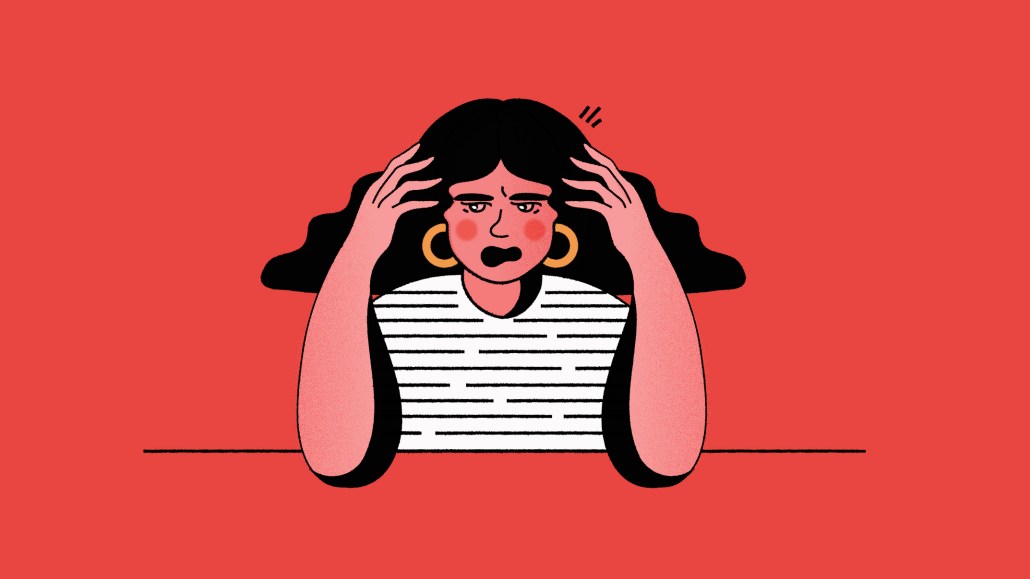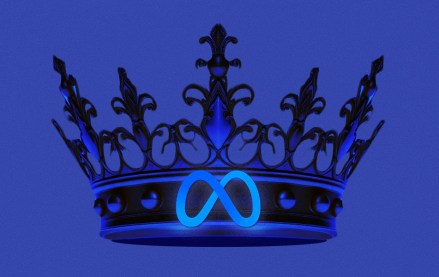Secure your place at the Digiday Publishing Summit in Vail, March 23-25
‘It’s palpable’: Why younger generations are more prone to ‘Sunday Scaries’ than ever before

If it’s Sunday afternoon, and the worries of the workweek are pressing your nerves, you’re not alone. The pandemic has given workers a case of the Sunday Scaries, and the younger generations are feeling it the most.
Jim (a pseudonym Digiday agreed to in order to allow him to talk freely), a 30 year-old media buyer based in Silicon Valley, said that he started experiencing high anxiety — dubbed “Sunday Scaries” — about the workweek every Sunday for the first time during the pandemic. “I get the Sunday Scaries because it’s a reality check. I have to go back to the part of my life that is ‘required.’ All the time spent at home during the start of the pandemic made us realize that our time away from the office is prized,” he said.
And he’s not the only one. Around 31% of male professionals said the pandemic has caused them to have Sunday Scaries for the first time ever, according to a 2021 survey of almost 3,000 full-time U.S. workers conducted by CensusWide on behalf of LinkedIn. A total 66% of respondents said they experience stress and anxiousness on Sundays ahead of the workweek and 41% said the pandemic has made them worse than ever. Millennials and Gen Z have it the worst: over three-quarters of each age group said that Sundays no longer represent the day of rest and relaxation they once did.
For others, the return to the office is a prime source for worry, particularly for Gen Z: 75% of these young professionals said they have the first-day, back-at-work jitters, according to the same report.
Naturally, the notion of the Sunday blues, existed long before the arrival of COVID-19. But the enforced remote-working that sprang up as a result of the pandemic has led many people to reassess their work-life balance and priorities. And that’s meant that people are no longer dismissing the anxiety as par for the course, but realizing it means they don’t like their jobs as much as they should.
“Before the pandemic there was this generations-old idea that your work should be your passion,” said Genie (another pseudonym Digiday provided for her to talk freely) a Gen Z biotech scientist. “You should go to work every morning, come home at night, and do it every day until you retire, no questions asked. During the pandemic, though, people found different passions. They found more flexible work schedules, which led to more exploration and fulfillment outside of their work.”
Because of this, people found their work more enjoyable and were probably more productive, she added. “Sunday Scaries have gotten worse since going back to work, post-lockdown, because we got a taste of what a well-balanced life actually looks like, and it worked. Now we’re forced back into a subpar, antiquated system.”
Judith Orloff, MD, and author of “The Empath’s Survival Guide” said it’s very common for people to feel anxiety about going back into work — on Sundays and in general — not only for fear of their health, but for fear of emotional contagion.
There are so many people who are anxious at work, or even Zoom meetings, that the workplace can spread anxiety. “It’s palpable, and if you are a highly sensitive person, you’re going to pick up on that anxiety, which can trigger your own and make things worse, even intolerable,” she said. To overcome these potentially negative influences, she advises finding ways to stay calm in the office.
“If you’re in a workplace where there’s a lot of noise — where people are verbalizing their anxieties about the pandemic or job security for example — try some noise-canceling headphones. Taking breaks, going for walks, and saying positive affirmations can bring you back to your center,” she said.
On the flip side, if you notice that a fellow co-worker is experiencing anxiety, sometimes the best thing that you can do is leave them alone. “Do not try to fix people who are anxious at work, because this can make matters worse by magnifying the problem. It’s not your role to be a therapist in the workplace,” said Orloff.
Creating wellness in the workplace starts with the individual. “Research on happiness shows that we actually feel better when we engage with negative emotions,” said Alison Escalante, professor of pediatrics at Rush University. She has named her mindfulness strategy for dealing with emotions like dread or anxiety the “sigh, see and start method” — an approach that helps people take effective action under pressure.
“If you can step out of your dread, then you can better enjoy your weekend. When it comes to the Sunday Scaries, first sigh. A deep, deliberate breath in and a slow breath out directly calms the nervous system. Then really try to see what the dread is attempting to tell you. Finally, start taking action. If your anxiety is really intense, it could be a sign that you’re in a toxic workplace, and maybe it’s time to consider a different job,” added Escalante.
More in Marketing

‘An ethics issue’: Why some creators are re-auditing their brand deals after Hootsuite-ICE controversy
Hootsuite’s partnership with ICE sparked controversy earlier this year, prompting creators to re-examine their brand deals and ethics standards.

Gary Vaynerchuk built his name telling CMOs they were wrong. Now he’s telling their CFOs instead
Gary Vaynerchuk has a new favorite meeting.

As it ramps up push to fund AI bets, Meta makes a new play for agencies
Even in the age of Advantage+, Meta needs agencies.








